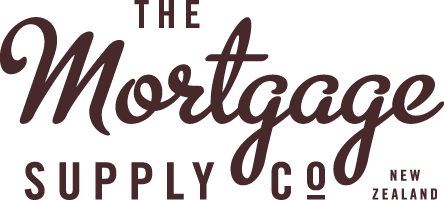.png?width=1200&name=H%26D%20_%20Blog%20Hero%20Image%20Template%20(10).png)
If you're in the market of purchasing your a home, then you'll be all too familiar with the application process of getting a traditional loan from the bank. This, as we all know, is the most common method of getting a home loan and a go-to for most Kiwis. However, it isn't always as simple as walking into a bank, signing a piece of paper and walking out with your new loan approved.
One of the greatest benefits a mortgage adviser has in helping provide solutions to all sorts of situations, is that they have at their disposal a surprisingly large toolkit of lenders.
Unsurprisingly, most people think of banks when it comes to getting a mortgage, whether it be for their first home, moving up the ladder or purchasing their first investment property. Not so surprising perhaps are the number of occasions that a bank says no, and the solution to a client's needs is found amongst the wide range of options provided by non-bank lenders.
In this blog, we dive into the intricacies of non-bank lending options, and cover the value they can add to borrowers, particularly when then bank says no.
What is non-bank lending?
When people hear the term 'non-bank lending', a common misconception that jumps to mind is the typical 'loan shark' stereotype. A back alley person or entity that loans money at extremely high interest rates. This however, is exactly that - a misconception. While interest rates can be slightly higher than a traditional bank, non-bank lenders are actually a trustworthy and low-risk option that can provide a bridging loan or alternative strategy when you're in a tight spot.
Non-bank lending simply refers to those lenders who are involved in the business of providing finance, but are not the traditional registered banks like ANZ, ASB, Westpac, and so on. There are a number of non-bank lenders in New Zealand who are able to assist Kiwis in financing loans, the trick is being paired with the right non-bank lender that suits your personal requirements, which is where an advisor can help.
One of the main differences between banks and non-banks is that non-banks don't hold a New Zealand banking license and therefore cannot offer deposit accounts such as savings accounts, transaction accounts and term deposits.
Because non-bankers are regulated by fewer government bodies, many people assume that non-bank lenders are less trustworthy - which isn't true. Non-bank have to adhere to the responsible lending code, meaning that they are regulated and therefore trustworthy, but have the flexibility that traditional banks don't.
Many are actually funded by large warehouse funding lines provided by a bank and are allowed to on lend from those facilities but under firm rules and credit policies provided by those banks. They also have to report back to those banks. Others are funded by deposits into investment arms, firmly controlled by requirements from the Financial Markets Authority, they then lend those funds and provide a return to investors.
In a recent interview on the Jack Windler Audio Show, Mortgage Supply Co's Jack Windler spoke with Steve Massey, Head of Distribution for Avanti Finance and Steve had the following to say on the stigma around non-banks:
"As a non-bank, sometimes there's this view that we're these cowboys who sit out on the edges doing all this crazy stuff, which is simply just not the case."
Why choose a non-bank?
There are three main reasons why working with a mortgage adviser to choose a non-bank lender can be advantageous in your journey to home ownership.
- Bad credit loans
A non-bank is usually the first place people with bad credit turn to for personal loans as a bad credit score is quite often a red flag for banks. There are lot of reasons why someone might have a bad credit history too; from unforeseen personal circumstances such as a divorce, to a an unpredictable event causing a market downtown such as COVID-19. Often, banks won't treat look into circumstances and will simply see a record of bad debt and make a decision. Non-banks, however, are for more open towards people with bad credit scores, working to provide a short term solution to get people through the hump. A bad credit score is normally not a barrier with non-banks as most believe an individual shouldn't be blocked from getting a personal loan just because of past mistakes.
- Personalised loans
Because non-banks have far fewer clients, this means they're able to provide more personalised loans to their clients that cater to their specific needs that normal banks, who are usually bogged down by far more regulation and corporate structure, are unable to provide. In our recent blog, we discussed the current long wait times and the importance of pre-approval when seeking a loan from a traditional bank, however, often a non-bank lender will be able to work with you to skip the queue. Put simple, there are far less hoops to jump through with a non-bank lender, and a lower volume of applicants to work through mean your application will never be far from the first in line.
- Loans for the self-employed
With COVID impacting the majority of self-employed customers, showing 2020 income details can be difficult. This can sometimes be a barrier for a traditional bank, as they expect a 2-year record of your income before approving a loan. Non-Banks offer alternate methods of verifying income and are less rigid in terms of what they need from you to offer an approved loan, so if you're self-employed and it's proving to be a barrier between yourself and a traditional bank, a mortgage advisor can help you to find a non-bank that will work with you.
What's the future for non-banks?
With more uncertainty in the current climate, historically low interest rates and the unprecedented removal of LVR restrictions, traditional banks are becoming stricter with with who they're willing to loan to. With a preference on simple, low-risk transactions, it's become tougher for Kiwis to get the loans they need and non-banks are here to service that overflow.
As a result, non-bank lenders are seeing an increase in popularity as an option. Resimac's head of New Zealand Luke Jackson said the company "was perfectly placed to service the market", and had grown its book by nearly 30%.
"We haven’t had to slow down on lending volume or make any changes to credit policies this year," he said. "On an annualised basis, we’re running close to a 30% book growth, and we announced earlier this month that we’ve had a record number of settlements over the last six months."
Speaking to Bruce Smith, National Sales Manager at FMT, Bruce touched on where his company was at and where he sees it moving in the coming months/years;
"I can only see our market grow, and we'll come out with more products to meet that market, and we've already got very niche products there at the moment and a skilled team to work it through"
It's this diversifying and continuing improvement of products that'll see non-banks continue to thrive in the money lending space.
So, to answer our initial question of 'Can you trust non-banks?' - absolutely. When working with a mortgage advisor who can help you to navigate the number of alternative lending options available and ensure that you're strategy is low-risk and will serve you well, non-bank lenders are a viable option when you need that added flexibility.
If you're interested in the possibility of getting a loan form a non-bank and need some guidance, get in touch with us! We're here to help you any way possible.










